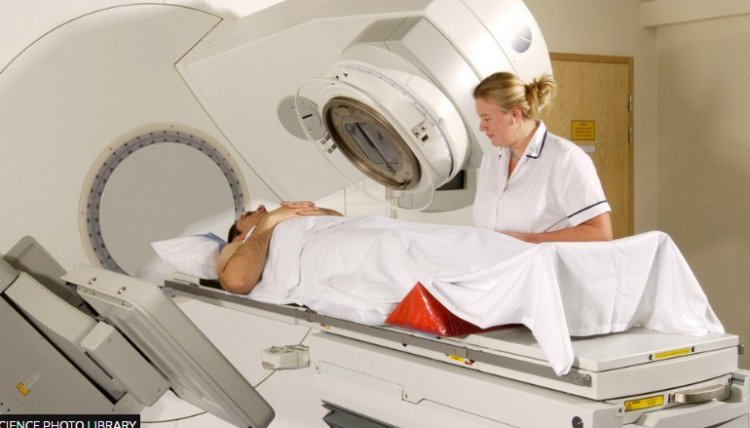Increase in Cancer Cases among People Over 50 Should be of Concern
Cancer has been a part of the human story for a long time. Even so, a new review has revealed that something has recently shifted. Globally, the number of adults under the age of 50 diagnosed with cancer has increased dramatically since 1990.

What's troubling is that the rise in early-onset cancers does not appear to be slowing, and advances in screening alone do not appear to be sufficient to explain the trend. "We discovered that this risk increases with each generation," one of the researchers says.
For instance, persons born in 1960 had a greater risk of developing cancer before they were 50 than people born in 1950, and we forecast that this risk level will rise over time.
Cancer is on the rise in modern society, which is not a novel idea.
Researchers are already aware that there has been an increase in people getting late-onset cancer since the 1940s and 1950s, which means developing cancer after the age of 50.
But the researchers wanted to know if the rate of cancer in people under the age of 50 was increasing as well. They needed to look at people born in the 1950s and 1960s but study their cancer rates from the 1990s onwards to accomplish this.
Breast, colorectal (CRC), endometrial, esophageal, extrahepatic bile duct, gallbladder, head and neck, kidney, liver, bone marrow, pancreas, prostate, stomach, and thyroid cancer were all studied.
Global cancer data showed that all of these cancers were on the rise in adults under the age of 50 between 2000 and 2012.
The researchers went a step further, reviewing any available studies that could shed light on potential risk factors for these cancers. They also looked for clues in the literature describing any distinct clinical and biological characteristics of tumors from early-onset cancers versus those from late-onset cancers diagnosed after the age of 50.
Between 2000 and 2012, global cancer data revealed that all of these cancers were on the rise in adults under the age of 50.
The researchers went one step further, reviewing any studies that might shed light on potential risk factors for these cancers.
They also searched the literature for clues describing any differences in clinical and biological characteristics of tumors from early-onset cancers versus those from late-onset cancers diagnosed after the age of 50.
What has changed to increase the risk of developing early-onset cancer among people turning 50 after the 1990s?
Increased screening is one of the largest developments, and it likely helped to enhance the rates of early-onset cancer identification.
However, the team points out that this does not appear to be sufficient to explain the change, especially given that several early-onset cancers are increasing even in nations without screening programs.

The team notes in the paper that "a true increase in the incidence of early-onset versions of multiple cancer types also seems to have occurred."
The research implies that the' shift' in cancer rates actually occurred earlier, when individuals currently in their middle ages were youngsters, around the middle of the last century, in addition to the fact that we are just better at discovering early-onset malignancies these days.
It's no secret that a lot has changed in our lives since then, especially with the introduction of highly processed foods, and the signs point to a possible interaction between diet, lifestyle, weight, exposure to the environment, and microbiome.
Eight of the 14 cancer kinds that were increasing at the time of our study, according to epidemiologist Tomotaka Ugai of Harvard Medical School, were connected to the digestive system.
"The microorganisms in our gut are fed by the food we eat." Diet has a direct impact on microbiome composition, and these changes can eventually influence disease risk and outcomes."
Sugary beverages, type 2 diabetes, obesity, a sedentary lifestyle, and alcohol consumption are also risk factors, all of which have increased significantly since the 1950s.
Interestingly, while adult sleep duration hasn't changed significantly over the last few decades, children are getting a lot less sleep than they did decades ago, according to the team.
This study, of course, is far from conclusive. It's a review of previous research. As a result, the team was unable to make any changes and directly measure the effects.
They also lacked data from low- and middle-income countries, but believe that "the rise of early-onset cancers is likely to be increasingly prominent in those countries, potentially leading to a global early-onset cancer pandemic."
The team will now continue their work and hopes to be able to set up longitudinal cohort studies in the future, which will involve young children being followed up on for decades.
"Without such studies, it's difficult to determine what someone with cancer did decades ago or as a child," Ugai says.
The long-term hope is that we can educate people to lead healthier lifestyles in their early years, lowering the risk of developing cancer at a young age.
But there's still a lot of work to be done to fully comprehend how we got here and where we're going next.

 Steve Mburu
Steve Mburu 
























